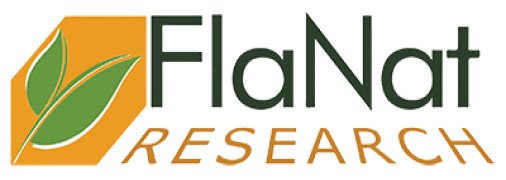Upcycling opportunities in a post-pandemic world
23 May 2020The food industry has made strides in reducing food waste in recent years – and a growing number of consumers has embraced a ‘zero waste’ goal – but it has re-emerged as a major problem during the Covid-19 pandemic.
In the long term, could the crisis boost upcycling and the circular economy?
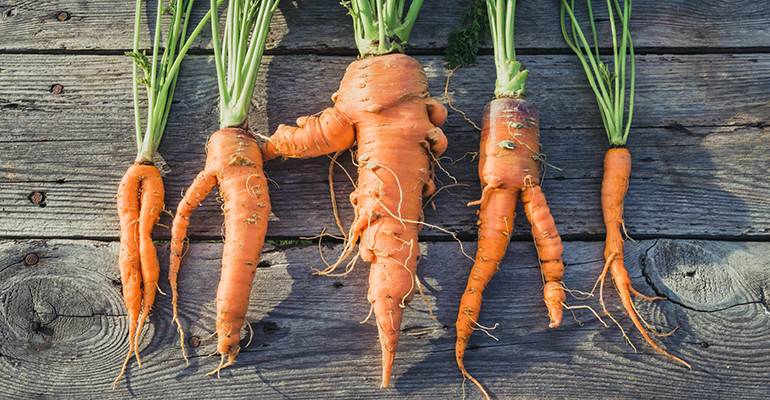
Not only are consumers producing more food and packaging waste at home, but foods and ingredients that would have been used in restaurants and the foodservice sector also are going to waste. Farmers are seeing produce rotting in their fields, while dairy producers are tipping away fresh milk and discarding high-end cheeses because of a lack of consumer demand.
The World Food Programme has said that the number of people facing acute food insecurity will double in 2020, while in developed countries, food supply has been largely maintained, although logistics have been a major challenge. Many consumers in western markets have become increasingly aware of their local food supply chains, partly due to scattered disruptions, sporadic deliveries, and price spikes for certain items. It is possible that this could lead to greater demand for sustainably produced, local and seasonal food networks in the future.
More and more food companies have been getting on board with the idea of a circular food economy, closing the loop on food production and food waste, and looking for new uses for the side streams that occur during processing. It is a win-win situation, providing both environmental and financial benefits.
Some ingredients go even further, providing health benefits as well. UK-headquartered Comet Bio, for example, is among the latest to develop an upcycled ingredient with its Arabinoxylan Plant Fibre Extract, a prebiotic made from farm leftovers such as leaves, stalks, and shells. Other companies active in the area include the Israeli ingredients company Frutarom Health, which has developed an organic soy isoflavone ingredient from soy germs, which are currently not used in soy-based beverages, helping cut waste from the production process; FlaNat Research Italia, which recovers nutrients from agro-food by-products to produce botanical extracts for use in nutraceuticals; and Scelta Mushrooms, which produces a range of products and salt-enhancing extracts from mushroom waste.
In the United States, a group formed in January 2020 called the Upcycled Food Association recently issued a definition of upcycled food, saying: "Upcycled foods use ingredients that otherwise would not have gone to human consumption, are procured and produced using verifiable supply chains, and have a positive impact on the environment."
The association aims to develop a certification programme for upcycled food and ingredients later in the year, and the definition will form the basis of that system. The hope is that this may motivate more companies to ramp up their upcycling efforts.
Considering the current global focus on food supply chains, and the environmental and economic impacts of current ways of doing business, there may never be a better time to develop a truly circular food economy.
Related news

Plastic packaging reduction requires industry rethink
6 Jan 2023
The food and beverage sector is calling for industry-wide collaboration and business model updates to reduce the environmental impact of plastic packaging.
Read more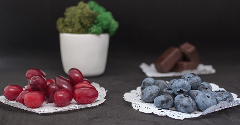
Misleading nutrition claims mask true sugar levels in baby food
5 Jan 2023
Some baby and toddler food and drink products, sweetened with fruit concentrate, contain up to four teaspoons of sugar per serving yet are marketed as having ‘no added sugar’, according to a survey by Action on Sugar.
Read more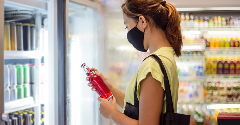
Asian beverage brands deal with rising costs
4 Jan 2023
Decreasing bottle sizes or increasing prices? Asian beverage brands are finding “creative approaches” to manage rising costs, according to industry analysts.
Read more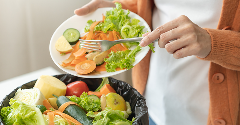
Preserving the freshness of food to fight waste
3 Jan 2023
Several companies are producing products that absorb ethylene, the hormone that causes food to ripen, in attempt to reduce food waste.
Read more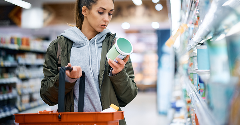
Value-seeking US consumers cut back on food spending
2 Jan 2023
Cheaper items, smaller sizes, and shorter grocery lists: inflationary effects coupled with a global long-term recession are set to continue shaping food spending habits, according to a recent Rabobank report.
Read more
Opportunities grow for lower-caffeine coffee
23 Dec 2022
Many consumers want the mental focus of caffeine without the jitters, prompting a wave of product development such as “half caffeine” ground coffee or ready-to-drink (RTD) cold brew blended with relaxing botanicals.
Read more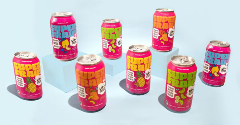
Superfrau upcycles liquid whey for energy drinks
22 Dec 2022
US company Superfrau turns surplus whey into sustainable, upcycled-certified dairy products for the recovery drinks market.
Read more
Malaysian brand Nanka brings jackfruit range to Europe
21 Dec 2022
Malaysian brand Nanka is expanding to new Asian and European markets with its fast and ready-to-eat plant-based products based on jackfruit.
Read more
Is the UK on target to meet its 2025 Plastics Pact?
20 Dec 2022
Major food industry players, including Arla, Kerry, PepsiCo and TerraCycle, have signed the UK’s voluntary Plastic Pact to reduce plastic from the supply chain – but are they on track to meet their targets?
Read more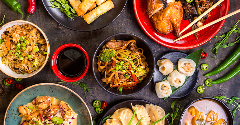
Chinese food brand wants to give customers ‘the full experience’
16 Dec 2022
Food brand Xiao Chi Jie is revamping Chinese cuisine for the modern American consumer. The Washington-based company sells regional Chinese specialties like soup dumplings, noodle kits, and barbeque skewers direct-to-consumer in the US.
Read more